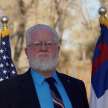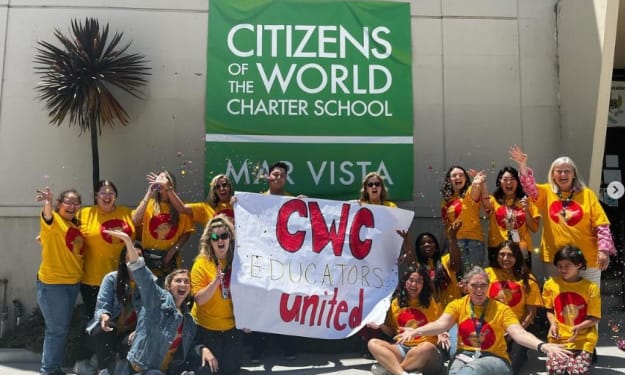Portions of Washington's Farewell Address
A Nation In Trouble

Portions of George Washington’s Farewell Address
Gail D Prentice
Before I launch into portions the Washington Farewell Address, I want to preface it with these statements of other patriots and wise men of the past.
James Monroe, Monroe Doctrine
“In the wars of European powers in matters relating to themselves we have never taken any part, nor does it comport with our policy so to do…Our policy in regard to Europe…is, not to interfere in the internal concerns of any of its powers…”
John Dickinson, signer of the Constitution
“Let these truths be indelibly impressed on our minds: (1) that we cannot be happy without being free; (2) that we cannot be free without being secure in our property; (3) that we cannot be secure in our property if without our consent others may as by right take it away.”
These two statements are of particular interest as concerning the current state of affairs in the United States and what President Washington spoke of in his farewell address.
The underlined statement below shows where the United Sates of America is right now. We are deeply in debt and have no foreseeable relief of that debt in the future. President Washington would be ashamed of the America that exists today. He fought, served, and sacrificed for a nation that was debt free. Debt free financially and debt-free from encumbrances to other nations. In fact, any president should be embarrassed of what America had succumbed to as far as debt is concerned.
George Washington’s “Farewell Address”
“As a very important source of strength and security, cherish public credit. One method of preserving it is to use it as sparingly as possible, avoiding occasions of expense by cultivating peace, but remembering also that timely disbursements to prepare for danger prevent much greater disbursements to repel it; avoiding likewise the accumulation of debt, not only by shunning occasions of expense, but by vigorous exertions in time of peace to discharge the debts which unavoidable wars may have occasioned, not ungenerously throwing upon posterity the burden which we ourselves ought to bear.”
“Avoid the necessity of those overgrown military establishments which, under any form of government, are inauspicious (ominous) to liberty, and which are to be regarded as particularly hostile to republican liberty.”
“Observe good faith and justice toward all nations. Cultivate peace and harmony with all. Religion and morality enjoin this conduct.”
“Can it be that Providence has not connected the permanent felicity (contentment) of a nation with its virtue?”
“Nothing is more essential than that permanent, inveterate (incurable) antipathies (hatreds) against particular nations and passionate attachments for others should be excluded . . .”
“. . . just and amicable feelings toward all should be cultivated. The nation which indulges toward another an habitual hatred or an habitual fondness is in some degree a slave. It is a slave to its animosity or to its affection, either of which is sufficient to lead it astray from its duty and its interest. . . .”
“Antipathy (hostility) in one nation against another disposes each more readily to offer insult and injury, to lay hold of slight causes of umbrage (resentment), and to be haughty and intractable (problematic) when accidental or trifling occasions of dispute occur. Hence frequent collisions, obstinate, envenomed, and bloody contests. The nation prompted by ill will and resentment sometimes impels to war the government . . .”
“. . . likewise, a passionate attachment of one nation for another produces a variety of evils. Sympathy for the favorite nation, facilitating the illusion of an imaginary common interest in cases where no real common interest exists . . .”
“Infusing into one the enmities (hatreds) of the other, betrays the former into a participation in the quarrels and wars of the latter without adequate inducement or justification. It leads also to concessions to the favorite nation of privileges denied to others, which is apt doubly to injure the nation making the concessions by unnecessarily parting with what ought to have been retained, and by exciting jealousy, ill will, and a disposition to retaliate.”
“It is our true policy to steer clear of permanent alliances with any portion of the foreign world.” Words in italics are added for clarification.
____________________________________________________
What President Washington spelled out here is the way to preserve our republic and our integrity as a nation in the simplest fashion. Now, as we continue, let’s look at where we stand as a member of the United Nations.
____________________________________________________
United Nations Charter
Chapter VIII
Article 52
1. Nothing in the present Charter precludes the existence of regional arrangements or agencies for dealing with matters relating to the maintenance of international peace and security as are appropriate for regional action, provided that such arrangements are consistent with the Purposes and Principles of the United Nations.
Article 53
1. The Security Council shall, where appropriate, utilize such regional arrangements or agencies for enforcement action under its authority. But no enforcement action shall be taken under regional arrangements or by regional agencies without the authorization of the Security Council…
NATO Treaty (Washington DC 04 April 1949)
“The parties to this Treaty reaffirm their faith in the purposes and principles of the Charter of the United Nations . . .”
ARTICLE 1
“The Parties undertake, as set forth in the Charter of the United Nations, to settle any international dispute . . .and to refrain in their international relations from the threat or use of force in any manner inconsistent with the purposes of the United Nations.”
ARTICLE 5
“The parties agree that an armed attack against one or more of them in Europe or North America shall be considered an attack against them all, and consequently they agree that, if such an armed attack occurs, each of them, in exercise of the right of individual or collective self-defense recognized by Article 51 of the Charter of the United Nations, will assist the Party or Parties so attacked by taking forthwith… such action as it deems necessary, including the use of armed force…”
NATO Handbook (February 1972)
“The signatory countries undertake, in conformity with the terms of the United Nations Charter. . .
The Treaty is an agreement between certain countries for their collective self-defense as provided for in Article 51 of the Charter of the United Nations.”
“. . . it is a Treaty of alliance within the framework of the Charter of the United Nations . . .”
____________________________________________________
As we can readily see, the involvement of the United States of America in the United Nations is volatile and opposes everything that our founding fathers wanted for our nation.
The agreement with the UN specifically states that if any armed force/power attacks a member of the collective is a strike against all nations on the UN.
Should our governing body secede from the United States Constitution, it will have the backing of the UN and all nations of this unhealthy collective.
Should a movement begin to take action against our fractured government in an armed or any other means deemed unhealthy for the existing broken government, the United Nations has the “right” to step in with armed resistance from united militaries within the agreement of the United Nations.
This is in complete violation of the will of the founding patriots of our nation and also against the United States Constitution, Third Amendment, “No soldier, in time of peace be quartered in any house, without the consent of the Owner, nor in time of war, but in a manner to be prescribed by law.”
There is a very fine line drawn here as to where UN forces could be billeted in a time of war or in a time of peace as they act as a peace keeping force.
Should it be deemed a revolutionary war or a civil war, UN forces could be summoned to lead in the conflict ahead of our own military, who most likely would not take up arms against American citizens, but that is truly unknown if they would or not.
About the Creator
Enjoyed the story? Support the Creator.
Subscribe for free to receive all their stories in your feed. You could also pledge your support or give them a one-off tip, letting them know you appreciate their work.






Comments
There are no comments for this story
Be the first to respond and start the conversation.